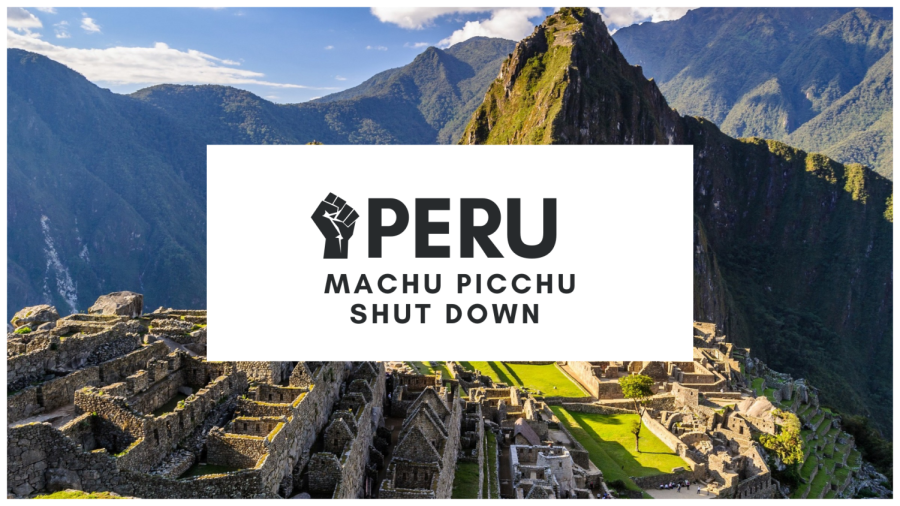Peru: the ancient and modern world shut down amidst public unrest
Machu Picchu is a 15th-century Inca citadel located in the Andes Mountains of Peru that was abandoned after the Spanish conquest and rediscovered in the 20th century, becoming a symbol of Inca civilization and a major tourist destination.
In the midst of a political crisis, Peru’s government, now engulfed by unrest, has declared a state of emergency.
Responding to protests, Lima has suspended constitutional rights including the right of assembly, culminating in the closing of Machu Picchu, one of Latin America’s most coveted tourist destinations.
“While I was disappointed that my plans to visit Machu Picchu were disrupted, I support the right of the Peruvian people to protest and demand change. Their calls for political reform and better living conditions are just, and I hope that a resolution is reached that benefits all parties involved, including the reopening of Machu Picchu,” said Peruvian student Alexander Ramirez (‘24)
The protests, demanding the resignation of incumbent president Dina Boluarte, among other political reforms, began in December following economic hardship and the impeachment of former president Pedro Castillo.
The shutdown of Machu Picchu, however, represents more than a hit to Peru’s tourism industry, showing the scale of Peruvian unrest–and potential safety concerns for those with family in the country.
“As a student at Foothill High, the political unrest in Peru has me worried for my loved ones living there. The ongoing protests and instability has created a sense of uncertainty for my family and I just hope they stay safe. My hope is for a swift resolution and for my family to return to normalcy,” said Ramirez.
This is not the first time that Peru has seen political unrest, with many Latin American countries seeing similar protests and disruptions, like in Chile and Colombia. Similar demands and how protests have been handled in these countries highlight the ongoing issues that much of Latin America continues to face.
“The events happening in Peru demonstrate the deep-seated issues that Latin American countries struggle with, from economic struggles to cries for political reform. It is a reminder that the region is still facing challenges that require attention and solutions,” said AV Model UN co-president Ishmeet Dhillon (‘24).
If these solutions fail to surface and the status quo remains, many fear protests like Peru’s will only continue to occur, disrupting not only Latin American life, but communities like Pleasanton with Latin American students as well.
Your donation will support the student journalists in the AVJournalism program. Your contribution will allow us to purchase equipment and cover our annual website hosting costs.

